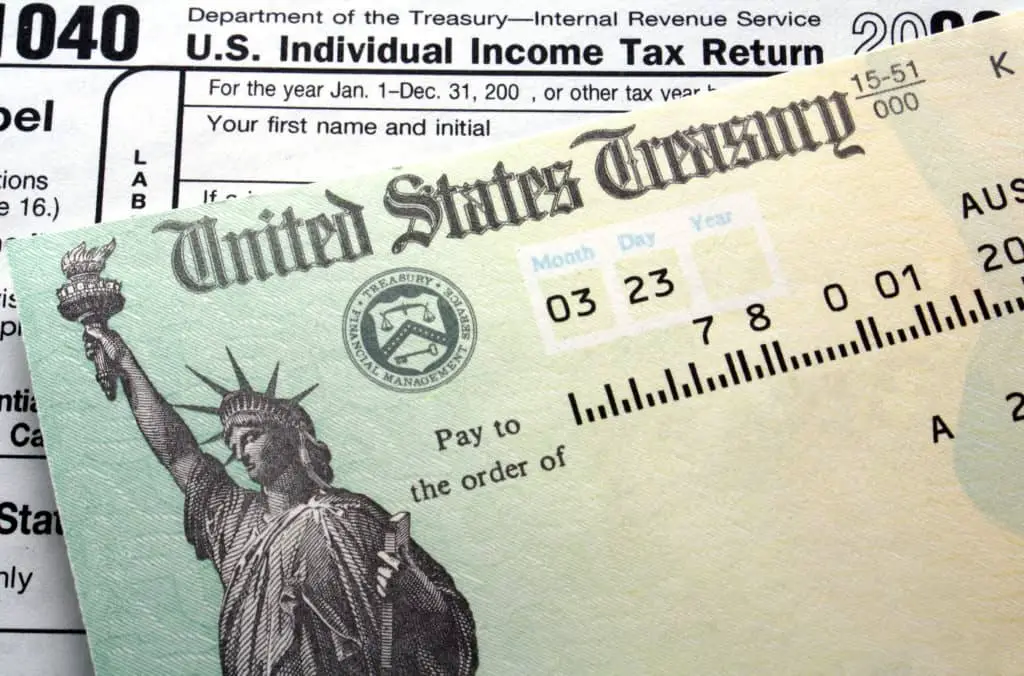
Congress has passed a bill that is going to send Stimulus Checks to the majority of all Americans during the next several weeks. This money is intended to be a stopgap for the wages that are lost as we experience an essential total shutdown of the U.S. economy.
Businesses and Wage Earners alike are going to be struggling through this time, and want to know how they are going to get through this period of time.
Low-interest rates for the last 20 years have disincentivized people to put much of their money in savings, and if they WERE able to save, chances are that money went into the stock market where it could earn some sort of return.
Now, with the stock market taking the biggest hits since the Great Depression, and businesses and work all but at a standstill due to the Coronavirus, Congress has passed a bill that is going to give adults $1,200 each, and kids under the age of 17 $500 each.
So, if you are renting an apartment, what do you do with this stimulus check when it comes? What are the best ways to use it, and how can you use this stimulus check to your advantage?
In this article, we are going to go through the BEST ways to utilize the Stimulus Checks as apartment dwellers.
Pay Your Current Bills
This is the single most important thing you can do with the money.
This is the reason the stimulus bill was passed in the first place. To give normal, working Americans enough short-term cash that they can pay their current bills, and get food and other supplies for their family during this incredibly uncertain time.
I mentioned in my other article about if you can be evicted or not because you lost your job due to the coronavirus, that the stimulus checks that are coming are NOT meant to be spent on going out and getting a new flat screen, or really anything else that is discretionary.
“Discretionary Spending” is usually defined as anything that is outside the essential necessities of living.
Non-Discretionary spending would be spending money on things like food, water, shelter, supplies, diapers, toilet paper, paper towels, cleaning supplied, bedding, and other basic things like that. Essentially, all the things you need just to survive.
Paying Your Bills is part of discretionary spending because you are paying the debt for using basic, essential provisions such as water, electricity, gas, sewer, and rent.
Because you have already consumed these resources, the providers send you a bill on a monthly basis depending on how much you used or whatever set amount you and they agree to charge you on a monthly basis.
But the important thing to remember is that these goods and services have already been consumed and regardless of how long the coronavirus is going to last, those debts are going to stay with you regardless.
It may be tempting to just let these debts accumulate, especially in times like these that the whole country is going through right now. But the more you let those debts accumulate, the worse shape you are going to be in when you go back to work.
Yes, you will have a paycheck and income again, but you will also have a mountain of debt that you still have to pay.
Take care of these bills, so if you are out of a job for longer than you anticipate, you remain in good standings will all of these providers for as long as possible.
If you have a stack of bills, but can’t get them all paid, figure out which ones hold priority and make sure those get paid. For the other bills, contact the provider and let them know you are only going to pay half, or a part of the bill during this period due to the coronavirus, ask for leniency and an extension on the payment period.
Many credit card companies are already doing this unilaterally to give some cushion to those people who have debt with them. Just be open and honest with whoever’s bill you can’t pay completely.
If that is your landlord, tell them your situation, that you are paying your bills as best you can, that you will pay them as money allows, and you are willing to work with them going forward on how to get caught up.
Create An Emergency Fund
An Emergency Fund is a small bank account or stockpile of readily available cash you can use in cases exactly like what the country is going through with the Coronavirus.
This is exactly what these emergency funds are meant to do, help you pay bills, buy food and supplies, and pay rent during an unforeseen emergency. The coronavirus and the shutdown of the economy is EXACTLY the definition of an unforeseen emergency.
Most financial experts will tell you that you need to have between 3-6 months of cash on hand in case your income dries up. This gives you the cushion to be able to provide for you and your family in the case of something like this coming up again.
The other thing an Emergency Fund takes care of is those unexpected expenses that come up as a part of life. Whether it is unforeseen doctors bills or a car repair that you have to take care of, unexpected costs are a part of life, and if you don’t have a plan on how you are going to take care of them BEFORE they happen, you could be in a world of hurt.
In the case with the stimulus checks and the coronavirus, if you are in a financial situation where you don’t need to use the money immediately, one of the two best things you can do with the money is SAVE IT!!
Saving it means delaying what you may WANT to buy now, for being able and capable of buying what you NEED down the road. The ability to do this not only can mean the difference of what your short-term situation looks like but can remove a TON of stress in your life as you figure out how to move on from here.
If you have the ability, save as much of the money from the Stimulus Check as possible. There is no telling how long it will take the economy to have a full recovery and everybody back to full employment. The prudent thing to do is prepare for the possibility that you may not have work for an extended period of time.
Pay Down Debts
Once you have your basic needs and bills covered, the next best thing you can do with your Stimulus Check is to pay down existing debts you have.
For the most part, this is going to take the form of high-interest credit card debt. If you have credit extended to you now, the best thing you can do is to pay as much of the high-interest rate debt obligation off. This will do a couple of things for you.
First, you will be paying much less interest on that money you have already borrowed and spent. This means that your balance is going to go down quicker, both leaving you a lower debt to someone else, and less money given to them in interest payments.
Secondly, it is going to grow the cushion you have on your credit cards. Instead of just leaving the balance to grow on your cards, pay off as much as you can. This not only looks good to the credit card company but then in the future, you have the room to put more purchases on the card if you need to.
You can do the same thing if you have a higher interest car loan or other personal debt. The best thing you can do to remain solvent and not have creditors coming after you because you are unable to pay for a couple of months is to use the Stimulus Checks from the coronavirus pandemic to help pay these debts down.
There is little understating how big of a benefit you can get by paying down your current debts.
Invest The Money
If you have your current needs covered and you are relatively debt-free, the best thing you can now do with your money is to help it work for you.
This means investing in something. Many times, the easiest way to do this is to invest in the market. With apps like Acorn and Robinhood, it has never been easier or more convenient to invest your money and have it start working for you.
If you have ever had the dream of moving out of your apartment and owning your own home or maybe some land, the only way you can do this is by increasing your income.
This is a tough ask for many people with hourly jobs or even a salaried position that doesn’t go up much on a yearly basis. People are accustomed to living just under their income, so to get to the level where you can afford your own house, you need to save some of the money you bring in each month.
To do this, you need to both put that money aside, and not spend it, but also put it in a vehicle that is going to work for you and pay you a return, which you can then reinvest.
Again, Acorn and Robinhood are two great apps that have TONS of benefits, especially for people living in apartments. Check them out!
Make A Budget
If you don’t have a budget already made, it is going to be hard to save any money or plan for the future. It should be something that everybody does to some extent.
Making a budget allows you to see exactly how much money you are spending, where you are spending it, and if there is any room for savings and investing, both things that are crucial for any long term plans you might have.
The other thing a budget helps with is during times like this during the Coronavirus. If you know exactly how much you are making and spending, it is going to be much easier to cut back on things and know where and when to spend when income dries up.
Knowing these things will help you get through the uncertainty that the coronavirus brings.
When Americans receive their Stimulus Check from the fallout of the Coronavirus, there ARE some things that you can do with your money that are better than others.
First, pay your current bills. This will ensure that you are staying current on all your normal obligations. Secondly, put some money away in an Emergency Fund, this will allow you to have some money in reserve for the times that you most need it.
If you have money left over, paying off other existing debt is a good use of your money.
And finally, invest that money so you have a nest egg for the future.
